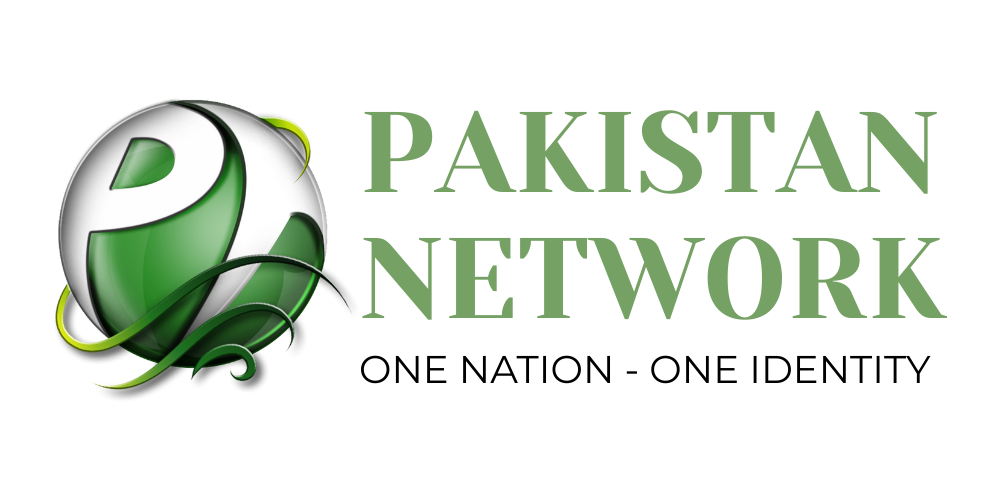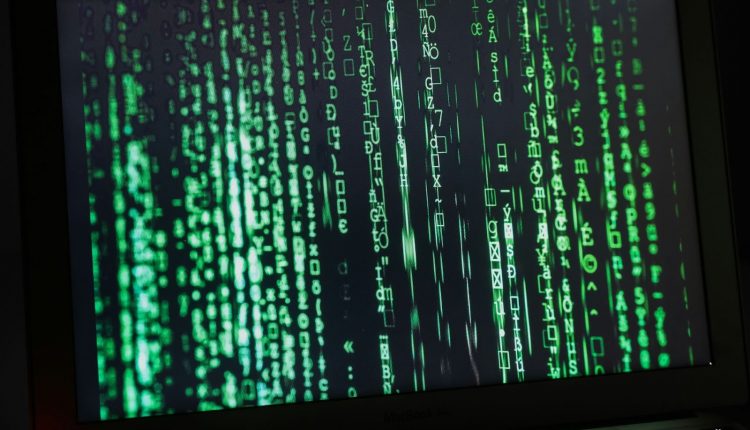Digital Iron Curtain — The Impact of Firewall on Pakistan’s Online Liberty
How Pakistan’s Internet Firewall Affects Society and Business
In recent months, Pakistan has embarked on a controversial journey towards digital regulation, implementing what many describe as a national firewall. Modeled on China’s stringent internet controls, this firewall has stirred significant debate and concern across various sectors. From its impact on freedom of expression to its effects on businesses and daily life, the firewall represents a pivotal shift in Pakistan’s approach to digital governance. This blog delves into the intricacies of this development, exploring its implications on society, the economy, and personal freedoms.
Understanding the Firewall
A national firewall is designed to act as a comprehensive barrier between a country’s internal network and the outside world. By regulating internet traffic, it allows the government to monitor, filter, and block access to certain websites and online content. The technology behind these firewalls includes deep packet inspection (DPI) and IP-level blocking, which enables authorities to scrutinize data packets and trace the origin of specific online content.
In Pakistan, the introduction of this firewall has been shrouded in secrecy. Officials have offered little transparency regarding its specific features or operational scope. While some reports suggest that it will target major social media platforms and restrict access to certain content deemed ‘controversial,’ the lack of detailed information fuels speculation and concern among digital rights advocates.
Government Justifications and Public Reactions
The Pakistani government has framed the firewall as a necessary measure for national security. Minister of State for IT, Shaza Fatima has cited concerns about cyber-attacks and the need to protect the country’s digital infrastructure as primary justifications for the firewall. According to her, the slow internet speeds and disruptions are attributed to increased VPN usage rather than the firewall itself. She argues that the firewall is meant to enhance cybersecurity and manage the risks associated with online threats.
However, this justification has not quelled public dissatisfaction. Activists and civil society organizations argue that the firewall is a blatant attempt to stifle dissent and restrict freedom of speech. Farieha Aziz, a digital security expert, contends that the firewall’s primary objective seems to be the suppression of political dissent rather than addressing genuine security concerns. The secrecy surrounding the firewall’s implementation only exacerbates these concerns, leading to widespread speculation and criticism.
Impact on Freedom of Expression
The impact of the firewall on freedom of expression is a major point of contention. Historically, Pakistan has faced criticism for its attempts to control and censor online content. This new firewall is seen as a continuation of this trend, with a focus on curbing political expression and dissent. Social media platforms like Facebook, YouTube, and X (formerly Twitter) are expected to be primary targets, potentially limiting the avenues through which individuals can voice their opinions and engage in political discourse.
The experience of other countries with similar firewalls, such as China and Iran, suggests that such measures often lead to increased suppression of free speech. In China, the Great Firewall has been instrumental in controlling the flow of information and stifling dissent. The effectiveness of such measures in Pakistan will depend on the government’s ability to enforce these restrictions and the public’s response to them.

Economic Consequences
The economic ramifications of the firewall are profound. The Pakistan Software Houses Association (P@SHA) has highlighted significant losses due to internet disruptions, estimating that the country has already incurred around $500 million in damages. The slow internet speeds and frequent outages have particularly affected businesses that rely heavily on digital platforms, including freelancers, tech companies, and e-commerce businesses.
Freelancers, who form a substantial part of Pakistan’s economy, have been particularly hard hit. Many have reported issues with accessing platforms like Fiverr and Upwork, leading to account suspensions and a decline in job opportunities. The disruption in services has not only affected individual freelancers but has also damaged Pakistan’s reputation as a viable location for outsourcing and remote work.
The impact extends to the broader IT sector as well. The disruption in internet services has led to decreased productivity and efficiency, threatening the viability of tech startups and established companies. A potential mass exodus of IT companies, driven by the desire to avoid the adverse effects of the firewall, could have long-term consequences for Pakistan’s position in the global technology market.
Public and International Response
The international community has also taken note of Pakistan’s firewall initiative. Digital rights organizations and international observers have expressed concern about the potential erosion of free speech and democratic values. Comparisons have been drawn between Pakistan’s firewall and the stringent controls seen in authoritarian regimes. The lack of transparency and the aggressive nature of the measures have drawn criticism from various quarters, highlighting the need for a more balanced approach to internet governance.
Locally, there has been significant pushback from civil society and advocacy groups. Activists have filed petitions challenging the legality of the firewall and its impact on fundamental rights. The Islamabad High Court has been urged to declare access to the internet a fundamental right, reflecting the growing concerns about the potential infringement on personal freedoms.
Social Implications
Beyond the economic and political ramifications, the social implications of the firewall are equally significant. In a society where social media has become a vital tool for communication, networking, and activism, the firewall threatens to isolate individuals from their digital communities. This disconnection can lead to a reduction in social engagement and a weakening of community bonds.
Educational institutions, too, face challenges as online learning platforms and digital resources become less accessible. Students who rely on these platforms for research and learning may find their educational opportunities compromised. The firewall’s restrictions could exacerbate educational disparities, particularly for those in remote or underserved areas who already face barriers to accessing quality education.
Moreover, the firewall’s implementation raises concerns about privacy. With increased surveillance capabilities, there is a risk that personal data could be mishandled or exploited. The balance between security and privacy is delicate, and the firewall’s current setup may tilt the scales towards greater intrusion into individuals’ personal lives.
Technological and Operational Challenges
Implementing a national firewall involves more than just deploying software and hardware; it requires ongoing technological and operational adjustments. The complexity of managing such a system cannot be underestimated. For instance, maintaining effective filtering while minimizing disruptions to legitimate internet traffic is a constant challenge. The firewall’s administrators must balance between blocking undesirable content and ensuring that users experience minimal delays or interruptions. Furthermore, the rapid pace of technological advancements means that the firewall must be continuously updated to address new threats and vulnerabilities. This dynamic environment necessitates significant investment in both technology and skilled personnel, adding to the operational burden.
Public Resistance and Evasion Tactics
As with any restrictive measure, public resistance is likely to play a significant role in shaping the firewall’s effectiveness. Users in Pakistan may resort to various evasion tactics to bypass the restrictions, such as using Virtual Private Networks (VPNs) or proxy servers. These tools can help users access blocked content and maintain anonymity, but they also complicate the enforcement of internet controls. The ongoing cat-and-mouse game between authorities and tech-savvy users highlights the limitations of stringent digital censorship. Additionally, the widespread use of circumvention tools may prompt the government to implement more sophisticated monitoring and enforcement mechanisms, further impacting internet freedom and privacy.

Comparative Analysis with Other Countries
Examining the experiences of other countries with similar digital restrictions can provide valuable insights into Pakistan’s situation. Countries like China, Russia, and Turkey have implemented extensive internet control systems, each with varying degrees of success and controversy. China’s Great Firewall, for example, is known for its extensive filtering capabilities but has also faced criticism for severe limitations on freedom of expression. Russia’s internet restrictions have led to increased governmental control over digital content and surveillance of online activities. Turkey, on the other hand, has experienced backlash and civil unrest in response to its internet censorship policies. By analyzing these international examples, Pakistan can better understand the potential long-term consequences of its firewall and consider adjustments to mitigate adverse effects on its digital landscape.
The Way Forward
As Pakistan continues to grapple with the complexities of the national firewall, there are several considerations for moving forward. Engaging in open dialogue with stakeholders, including civil society, businesses, and international partners, is crucial. Transparency about the firewall’s implementation and its goals can help alleviate some concerns and build trust among the public.
Additionally, exploring alternative approaches to cybersecurity that do not compromise fundamental rights is essential. Strengthening cybersecurity through collaborative efforts and investing in technology that safeguards both security and privacy can offer a more balanced solution. The experiences of other countries with similar measures can provide valuable lessons in designing effective yet respectful digital governance strategies.
Pakistan’s national firewall represents a significant shift in the country’s approach to digital regulation. While the government justifies the measure as necessary for national security, the impact on freedom of expression, economic stability, and public trust is substantial. As the firewall becomes operational, its effects on society, business, and governance will become clearer. The ongoing debate highlights the need for a careful and transparent approach to internet governance, ensuring that security measures do not come at the expense of fundamental rights and freedoms.
The story of Pakistan’s firewall is one of tension between security and freedom, technology and governance. As the country grapples with these issues, the lessons learned will be critical in shaping the future of digital policy in Pakistan and beyond.

